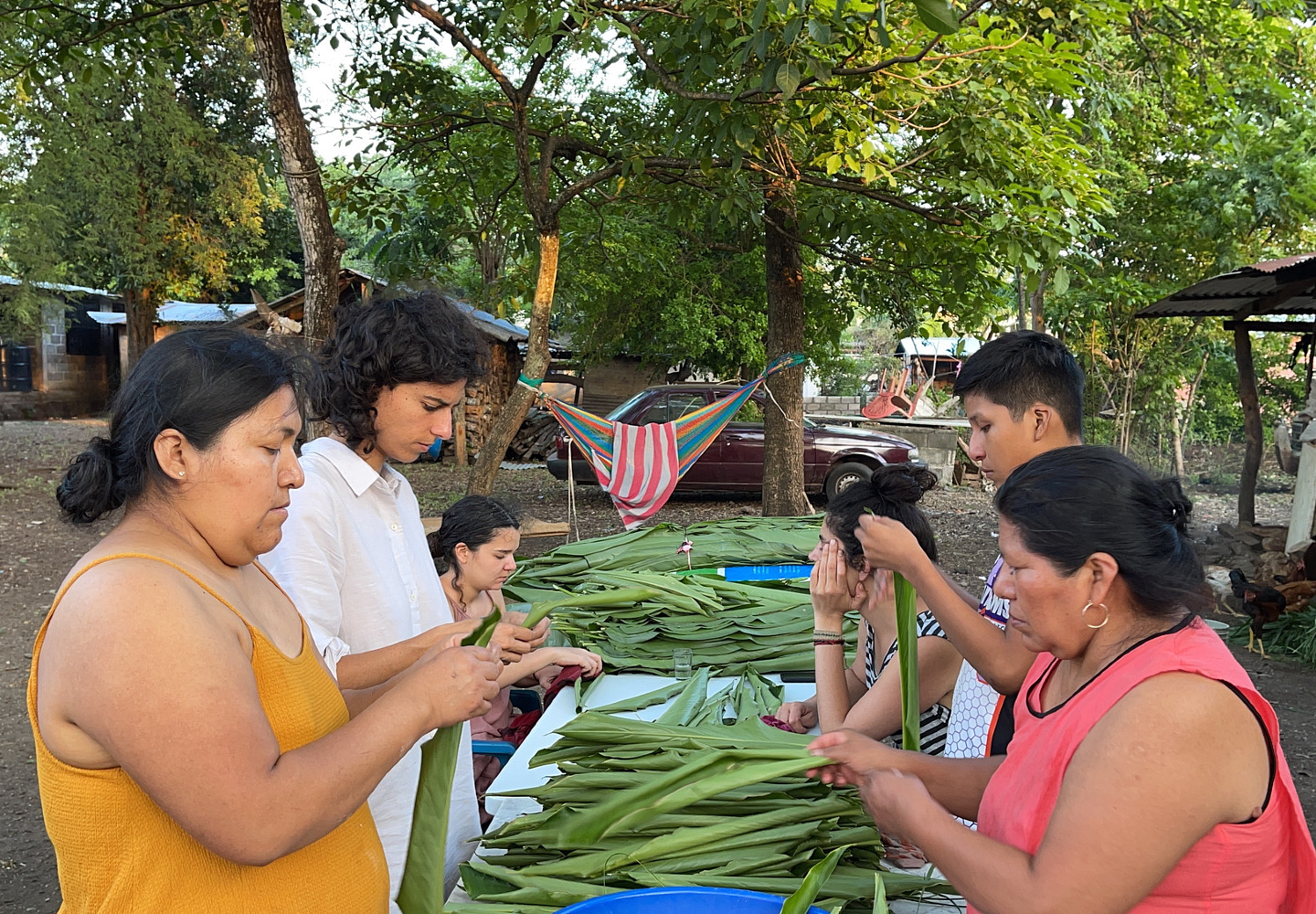Speaker details
How to watch
Presented by
The Museum of Modern Art
New York, NY
About The Speakers
colectivo amasijo, created in 2016 in Mexico City, is comprised of women of different professions and from different parts of Mexico. The collective rises from the will to care, conserve, and celebrate. Creating the conditions to actively reflect on the origin and diversity of food, de-hierarchizing knowledge and focusing on the “doings” (haceres) as a way of learning. They listen to the narratives of women close to the land—non-dominant narratives—and cook collectively as a way to share, learn, and relate. Through food, the interdependence of language, culture, and territory is understood as a network of interrelationships.
Speakers
Carmen Serra is cofounder of amasijo collective. She holds a degree in Latin American literature and a master’s in cultural biology. She has generated several cultural projects in various museums and foundations in Mexico, and served as a cultural attaché for Mexico in India and Peru. She has conducted research on the generative mechanism of collaboration. Serra directed the Common Benefit section of SITAC XIII, and teaches research classes in design, film, and television at CENTRO.
Martina Manterola holds a degree in economics from Instituto Tecnológico Autónomo de México and a diploma in agroforestry systems. She specializes in analyzing how the hierarchy of knowledge translates into losses of doing and knowing. Her practice investigates non-hegemonic knowledge. Within colectivo amasijo, she is developing the Complex Systems of Daily Life project, an archive of narratives through which she measures territorial degradation. For this, she has generated indicators to measure climate change from the narratives of the women who make up the amasijo network.
Catarina Duncan’s curatorial work focuses on cultural practices and territorial identities in Latin America. She is currently curator at Solar dos Abacaxis in Rio de Janeiro, Brazil. Duncan was part of the curatorial team of the 32nd Bienal de São Paulo, INCERTEZA VIVA (2015–16); the 36th Panorama of Brazilian Art, SERTÃO (2019); Pivô Arte e Pesquisa (2014–15); and the exhibition Terra Communal Marina Abramović in Sesc Pompéia (2015). She was curator of the public programming of the work Cura Bra Cura Té, by Ernesto Neto, at Pinacoteca (2019) and of the Plataforma Crítica Oficina Brennand (2020). Duncan represented the Third Paradise project by Michelangelo Pistoletto in Latin America (2019–21) and the COINCIDÊNCIA program of the Swiss foundation Pro Helvetia (2017–20).
Image: colectivo amasijo preparing tamales, Los Tuxtlas – Veracruz. Photo by Pablo Escoto.


